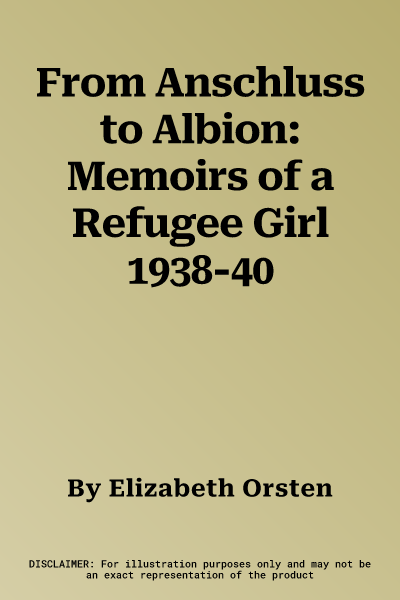Elisabeth Orsten grew up in a comfortable Viennese middle class milieu,
together with her wealthy parents, her younger brother George and her
nanny. Educated as a Roman Catholic, she was nevertheless Jewish
according to Nazi criteria, and it rapidly became clear to her parents
that if she was to survive the Nazi occupation she would have to leave
her native country. Her settled and secure childhood changed abruptly in
January 1939, when she and her brother George were transported to
England by the Jewish Refugee Childrenis Movement in an operation
parallel to the English Quakers; 'kindertransport'. In England she was
lodged with a friend of her family and her three daughters, but they
were unable to accommodate George, who was found lodging by the Quakers
in a different part of the country. Feeling very much alone, Elisabeth
immediately had to start learning an entirely new language and to
accommodate herself to a quite different culture from the one she was
used to. The struggle shows in her narrative of those times and,
particularly, in the extracts from the diary she had been given by her
nanny as a last present before she left Austria and which she began
writing in to maintain her German. When at last she managed to begin
feeling at home in England, there was yet more disruption in her life.
At the age of twelve, not knowing where George was, she was put on a
ship to America. Confusion on disembarkation and the renewed
difficulties of fitting in with yet another family and culture were
exacerbated by the frightening news of the sinking of later
transatlantic transports which might have been carrying others of her
family to safety. Only when she was finally reunited with her parents
and her brother, in September 1940, did the terror abate; and there her
diary entries cease. Fifty years later, now a university professor,
Elisabeth Orsten picked up that diary and reread it. As the memories
flooded back, she knew that she had to share the story with others, and
she began writing these memoirs. Full of personal feelings and private
incident, they constitute an intimate account of the problems a refugee
child faces when it is suddenly plucked from its usual environment and
placed unceremoniously into a different world. Many contemporary refugee
children have to deal with harsher conditions than the author endured.
Yet their stories have things in common with these memoirs. From
Anschluss to Albion can give us all an understanding of the feelings and
the turmoil undergone by a refugee child struggling to understand what
has occurred and why, while at the same time having to cope with
different language, culture, and carers.

